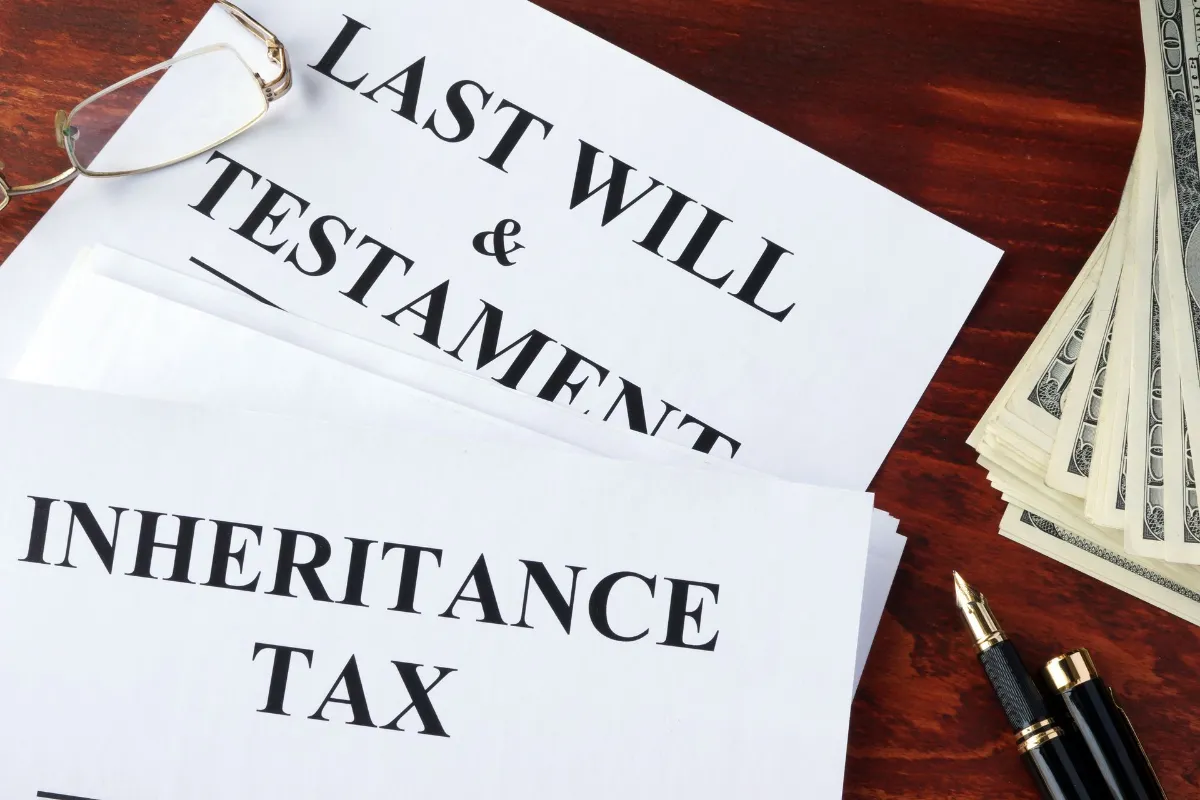Does Australia have an inheritance tax?

There is a lot of jockeying going on currently in Australian tax policy. As I write this article, there is talk of a bedroom tax being considered to tax people with a spare bedroom in their house as a bizarre way to tackle the housing crisis in Australia. I have also been asked recently by more than one client if Australia has an inheritance tax, otherwise known as the “Death Tax.” While some countries impose this tax, including the United States, France, the UK, and the Netherlands, among others, Australia, as of today, does not have an official inheritance tax. However, the ATO does apply other taxes that can bite.
“Australia, as of today, does not have an official inheritance tax. However, the ATO does apply other taxes that can bite.”
The big two: property and superannuation
Individuals may inherit a mix of assets, including cash and shares, business interests, personal items or collections, and life insurance. However, for the purpose of this article, I’m discussing the big two: property and superannuation.
Examining property first. As mentioned, Australia has no estate duty or inheritance tax. You won’t pay tax if you inherit a property. Instead, the main issues are:
- Capital Gains Tax (CGT): payable when the inherited property is later sold.
- Income Tax: if the property earns rent before it’s sold.
- Stamp Duty: usually exempt when transferring to beneficiaries under a will.
Depending on whether you inherit the primary family home or an investment property, there are a couple of scenarios.
Inheriting the primary home: Capital gains tax (CGT)
- If the deceased bought the home before 20 September 1985 (pre-CGT asset): Your cost base becomes the market value at death.
- If they bought it after 20 September 1985 (post-CGT asset): You inherit their cost base (what they paid, plus improvements).
The main residence exemption. You may be able to sell the property CGT-free if:
- The deceased lived in it as their main residence (and it wasn’t rented out) before death.
- You sell it within 2 years of death.
The exemption covers the home and up to 2 hectares of land used privately. Anything above this may be taxable.
The ATO now allows automatic extensions beyond 2 years in certain situations, such as probate delays, will disputes, or settlement delays. Otherwise, you can apply for a discretion ruling.
Foreign resident rule: If you (the beneficiary) or the deceased were a foreign resident, you generally cannot claim the main residence exemption.
Inheriting an investment property: Capital gains tax (CGT)
No CGT on the date of death. When you eventually sell:
- If the deceased acquired it pre-1985 → your cost base = market value at death.
- If acquired post-1985 → your cost base = the deceased’s original purchase price plus costs.
- You can count the deceased’s holding period toward the 12-month CGT discount test.
- If they held it for years, you can usually sell quickly and still qualify for the 50% CGT discount (if you’re an Australian resident).
Other considerations when inheriting a property:
- While the estate is being administered, the executor may collect rent or sell the property.
- The estate itself is taxed like a trust for up to 3 years at concessional individual rates (no Medicare levy).
- Once property passes to beneficiaries, all tax obligations shift to them.
Stamp duty and state based costs:
- Generally, property transfers from an estate to beneficiaries are exempt or charged a nominal duty, $50–$100, provided the transfer aligns with the will or intestacy laws.
- Normal duty applies if property is transferred outside the terms of the will (e.g., to a non-beneficiary).
- Land tax: States usually allow a temporary continuation of the deceased’s home exemption (often 2 years). Investment properties, however, remain subject to normal land tax.
Superannuation
Superannuation differs from property and other asset classes because it does not automatically form part of a deceased estate. The super fund’s trustee decides who receives the benefit. Binding nominations, rules of the trust deed, and superannuation law guide these decisions. The tax outcome depends on three factors.
- Who receives the benefit. Their relationship to the deceased.
- How it’s received. Either as a lump sum or an income stream.
- The components of the super. Tax-free Vs taxable.
For tax purposes, different from superannuation law, a death benefit dependant includes:
- Spouse or former spouse.
- Child under 18 years old.
- A person in an interdependancy relationship, a close personal relationship, living together, or receiving financial and domestic support.
- Any person financially dependant on the deceased.
Individuals outside these categories, such as independant adult children, are treated as non-dependants for tax purposes.
Every super benefit is divided into two main parts:
- Tax-free component → built from non-concessional contributions (after-tax money). Always paid tax-free to any beneficiary.
- Taxable component → built from concessional contributions (SG, salary sacrifice, pre-tax contributions, and earnings). This is where tax can apply.
Within the taxable component:
- Taxed element – money already taxed inside the fund.
- Untaxed element – money not yet taxed, often from defined benefit funds, insurance proceeds, or unfunded schemes.
In the case of lump sum payments, when paid to an eligible dependant, the payment is entirely tax-free, including the taxable element. When it is paid to a non-dependant, such as an adult child:
- Tax-free component: still tax-free.
- Taxable component: taxed at 15% + Medicare levy (effective 17%).
- Taxable component (untaxed element): taxed at 30% + Medicare levy (effective 32%).
If the lump sum is paid to the estate, the tax depends on whether the ultimate beneficiary is a dependant or a non-dependant.
Death benefits to a spouse, dependant children or financially dependant individuals may sometimes be paid as income streams. This is subject to:
- Age conditions (both of the deceased and the beneficiary).
- Transfer Balance Cap (TBC) limits: pension balances transferred count toward the TBC ($1.9m for 2025).
Non-dependants, such as adult children, cannot receive death benefit pensions; they must take a lump sum. The income stream is tax-free if the deceased or the beneficiary is over 60 at the time of death. If both are under 60, payments are taxable to the beneficiary, with a tax offset on the taxed element.
Other important considerations include Binding Death Benefit Nominations – BDBN
- A valid BDBN allows the member to direct the trustee exactly who gets the benefit. It must be dependants or estate.
- If non-binding or no nomination, the trustee decides based on the fund’s rules, often considering dependents first.
Necessary for estate planning.
If superannuation is paid directly to dependants, tax is withheld according to their status.
If paid to the estate, the executor handles the distribution. Tax is assessed as if paid directly to the final beneficiary.
How estate planning makes a difference
Looking after the people you care about is why estate planning is an important component of your overall financial plan. My team and I take a holistic approach to wealth management and ensure our clients have the protection they need. When it comes to death benefits, it is essential to have your affairs in order with a solid tax strategy in place. Remember that super death benefits are not automatically part of the estate. Tax depends on the relationship, dependant vs non-dependant, lump sum vs pension, and super components, such as tax-free vs taxable.
Dependants receive super tax-free, while adult non-dependants often face a significant tax bill. Estate planning with binding nominations and testamentary trusts is essential to optimise outcomes.
“Looking after the people you care about is why estate planning is an important component of your overall financial plan.”

Call us today for professional wealth advice
Our goal is to help you focus on long-term growth and wealth preservation.
Cayle Petritsch, Director and Wealth Advisor, is a leading financial advisor on Sydney’s North Shore. He has helped many Australians maximise their financial position and leverage opportunities, leading to sustained and profitable wealth accumulation. Contact Cayle today.

About the author
Cayle Petritsch - Director & Wealth Advisor
Cayle Petritsch, Director and Wealth Advisor, works with our existing clients who have recognised the importance of business owners making strategic financial choices not only for their company, but for their personal finances too.
Cayle saw a great opportunity to expand North Advisory’s services into SMSF/superannuation, personal wealth management, asset protection services and other crucial personal finance facets that business owners need to consider.
His approach to wealth management allows you to receive highly personalised wealth advice. Working closely with Marius, Cayle understands the unique needs of every client, from their lifestyle and business goals to their retirement plans.
Key Takeaways
Australia does not impose a formal inheritance tax.
Individuals do not pay tax simply because they inherit money or property.
Other taxes can still affect deceased estates.
Capital gains tax and the deceased’s final income tax return can result in tax liabilities for the estate.
Beneficiaries are usually not taxed on receipt.
Receiving an inheritance itself is not a taxable event, but later disposals may trigger tax.
Driven by our values
Effortless and Seamless
On-Boarding Process
Intuitive and Knowledgeable
Direct Expert
Access
Useful and Articulate
Financial
Reporting
Forward
Thinking
Compliance Solutions
Streamlined
Tech
Integrated and Automated
Frequently Asked Questions
Does Australia have an inheritance tax?
No — Australia abolished formal inheritance tax many years ago. There is no separate tax levied simply because someone inherits assets.
Can tax still apply when you inherit assets?
Yes — tax can still apply in other ways. For example, capital gains tax may apply to assets held in the estate or when beneficiaries later sell inherited assets.
What taxes might apply to a deceased estate?
The estate itself may pay capital gains tax if assets are sold during administration, and the deceased’s final tax return may include capital gains from assets sold before or after death.
Do beneficiaries pay tax when they receive assets?
Generally, beneficiaries do not pay tax simply for receiving assets. However, if they later sell those assets, capital gains tax may be relevant, depending on how the cost base is determined.
How is the cost base for inherited assets worked out for tax purposes?
For capital gains tax, inherited assets often receive a “cost base” based on market value at date of death, or sometimes a special cost base if the asset was pre-CGT property.
Does Australia have an inheritance tax?
No — Australia does not currently have an inheritance tax (sometimes called a “death tax”). However, depending on what you inherit (like an investment property or shares), you may still pay tax later, such as Capital Gains Tax (CGT) when you sell the asset.
North Advisory’s Reviews 



 On
On 
Flo Mitchell
4 weeks agoChanged to this company in 2019 from former accountant and love their approach of organizing everything for me face to face with Xero set up plus being able to call as much as I need for set annual fee. They also picked up on something that was not done correctly by my former accountant and saved me $4k for this.
Timothy Cummins
A month agoThey the truly the best, Martin and Judy are so experienced, knowledgeable & professonal, also quite like speaking with Rose : ) all people are so lovely!
Michael Iera
2 months agoPositive, Responsiveness, Quality, Professionalism, Value
Michael Iera
2 months agoExcellent company in regards to service and professionalism. Very experienced in dealing with complex matters. Highly recommended.


